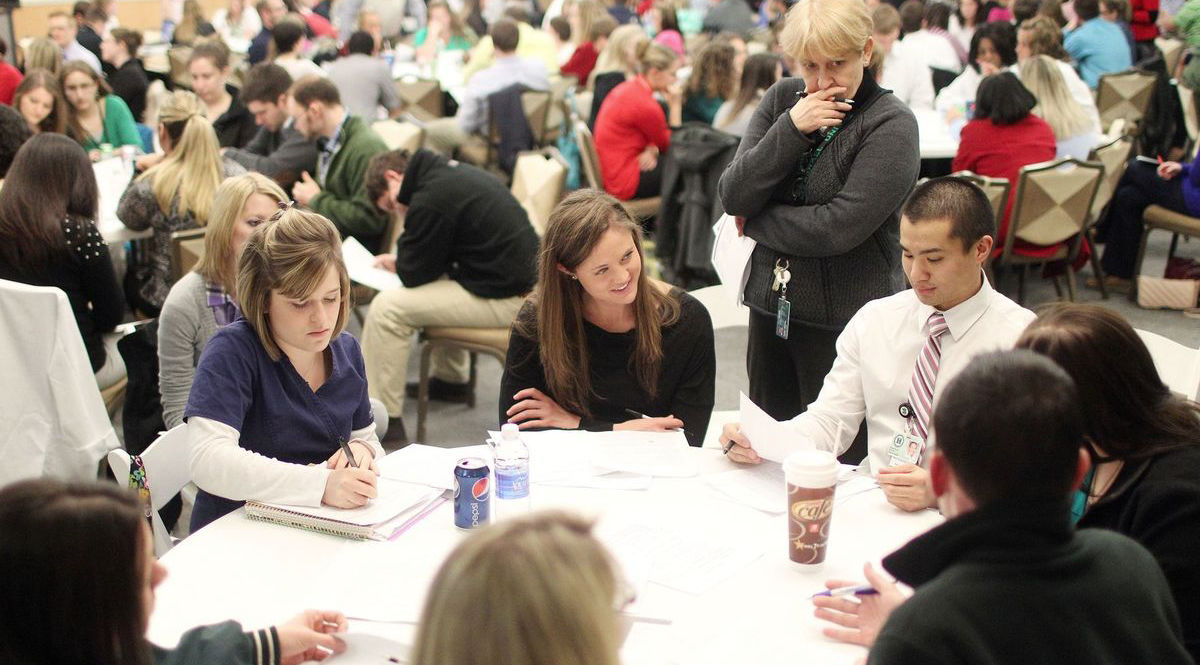It has been 5 years since Marshall University launched its initiative of creating a collaborative education series for the students in the College of Health Professions and the School of Medicine. In the spring of 2018, the interdisciplinary collaborative will host the unique opportunity for students in 8 disciplines from three university colleges. The University modeled its program from The World Health Organization’s Framework for action on interprofessional education and collaborative practice which was initially published in 2010.
The overarching theme of the framework is “Learning together to work together for better health and education.” Interprofessional education occurs when students from two or more professions learn about, from and with each other to enable effective collaboration and improve health outcomes.
Marshall University’s program encourages students to learn team-building and essential communication skills for patient-centered care and improved health care delivery. The concept of interprofessional education or common learning has gained traction over the past few years as a way to break down the traditional “silos” associated with higher education and to provide higher quality patient care.
While the planning, implementation and revision of the educational gatherings have proved to be challenging for the faculty, the benefits to students are far-reaching. Each year, new ideas are brought to the collaborative learning events for the over 325 students that join together to learn with and from each other. Students continue to respond positively and request more collaborative learning opportunities.
It is due to student feedback that additional disciplines were added over the last few years. They recognized the need for the expertise of social work and psychology in the decision making of their fictitious clients in the case study which has been central to the learning activity.
While each year there have been modifications, traditionally the events are structured around a series of three events with the first event designed as a group introduction to the health care team and the scope of practice of each discipline. The second team-based session allows the students to meet as a group and discuss a “case study” with discussion focused on how each profession plays a role in the care of the patient. The third event allows the students to come together as the health care team and discuss their findings and recommendations in a simulated scenario with a standardized patient.
This risk free and low stakes environment allows students the real-life opportunity of working as a team with a patient and family. One of the highlights of the evening is that the standardized patients and caregivers provide the students with feedback.
This year, faculty and students from the School of Medicine, School of Pharmacy along with the following disciplines from the College of Health Professions – Communication Disorders, Dietetics, Nursing, Social Work, Physical Therapy and the Psychology Department from the College of Liberal Arts will come together for 3 separate evenings with the sole mission of educating students in interprofessional practice.
All educators and health care providers should take this time to reflect on their current interprofessional practices. For more information, refer to http://www.who.int/hrh/resources/framework_action/en/.



